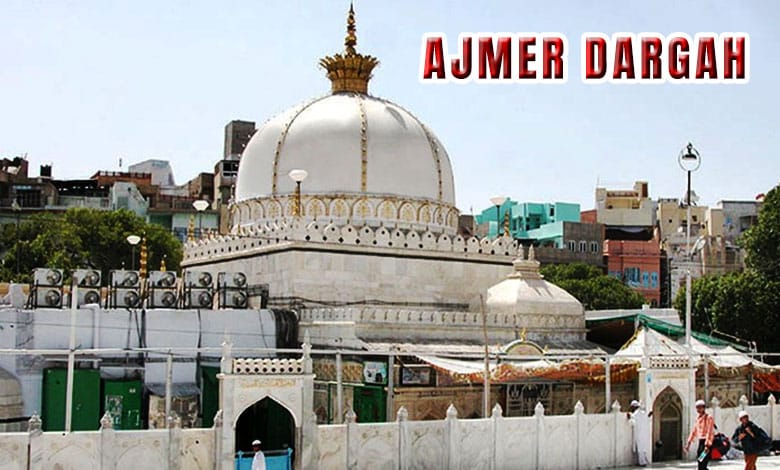Petition Claims Shiva Temple Under Ajmer Sharif Dargah: Court Issues Notices to ASI and Dargah Committee

In a controversial petition filed by Vishnu Gupta, the chief of Hindu Sena, claims have been made that the renowned Ajmer Sharif Dargah, the mausoleum of Sufi saint Khwaja Moinuddin Chishti, was originally a Hindu Shiva temple. The petition has sparked significant debate, and a local court in Ajmer, under Civil Judge Manmohan Chandel, has issued notices to the Union Ministry of Minority Affairs, the Archaeological Survey of India (ASI), and the Ajmer Dargah Committee for further investigation.
Gupta, in his petition, argues that there was a Hindu temple at the site, similar to claims made about other religious sites in India, such as those in Kashi and Mathura. He referred to the work of Har Bilas Sarda, a prominent figure from the British era, who, in 1910, allegedly documented the presence of a Hindu temple beneath the dargah. According to Sarda’s writings, there was a tradition that a Brahmin family would place sandalwood on an idol of Mahadeva (Shiva) inside a cellar in the dargah.
Gupta’s petition also suggests that the dargah was built over the ruins of Hindu and Jain temples. He further claimed that locals had spoken of a priest who once prayed at the site, with a Shiva lingam placed in the basement, which has since been removed.
Also Read: The 10 Richest People Who Ever Lived: From Mansa Musa to John D. Rockefeller
The petition and the resulting legal action have raised concerns about potential religious discord. Syed Sarwar Chishty, the Gaddi Nasheen (custodian) of the Ajmer Dargah, strongly opposed the claims, stating that the petition is an attempt to sow hatred against the Muslim community. He emphasized that the dargah has long been a symbol of interfaith unity and is respected by people of all religions.
Chishty criticized the petition as part of a series of baseless claims aimed at creating division. “This is not a joke. Every few days, new claims are made, and such attempts are designed to disrupt the peace and harmony that have existed at the dargah for centuries,” he said.
This legal challenge follows recent political developments, including the renaming of a hotel in Ajmer to “Ajaymeru,” a reference to the city’s ancient name during the reign of the 12th-century warrior king Prithviraj Chauhan. Some local leaders have also supported the idea that the region’s historical roots are tied to Hindu heritage, further fueling the controversy.
Also Read: How to Get a PAN Card for Your Child: A Step-by-Step Guide and Key Benefits
The case has drawn attention from various quarters, including religious and political groups, with some fearing it could ignite further tensions. The next hearing in the case is scheduled for December 20, and it remains to be seen how this matter will evolve.
As the legal proceedings continue, it is evident that the situation has the potential to stir significant controversy, especially considering the sensitivity of religious sites in India. The outcome of this case will likely have wider implications for interfaith relations and the delicate balance between preserving history and maintaining communal harmony.
